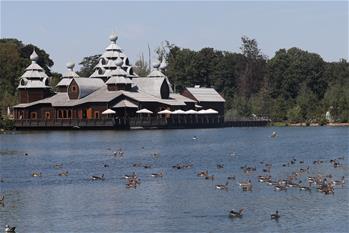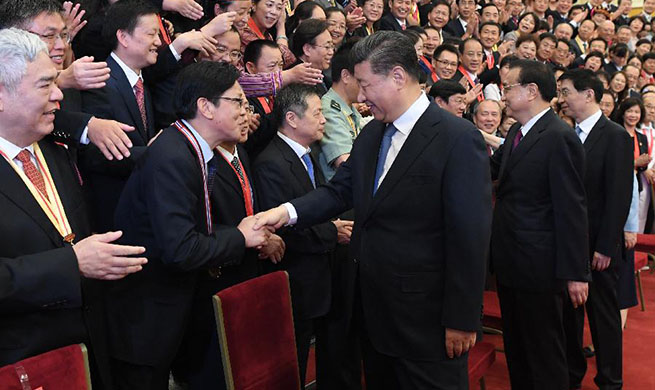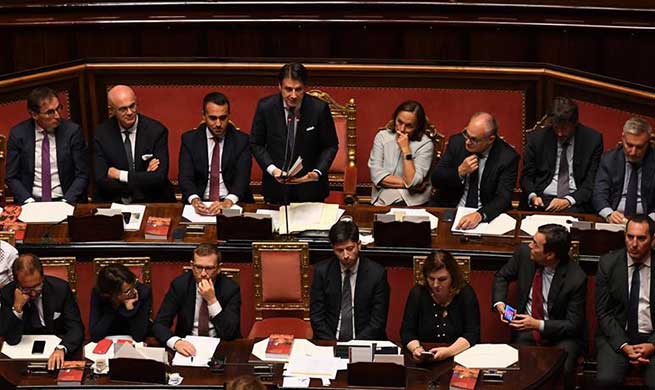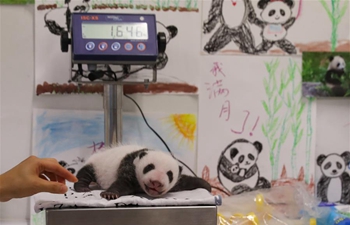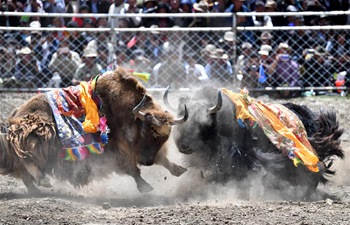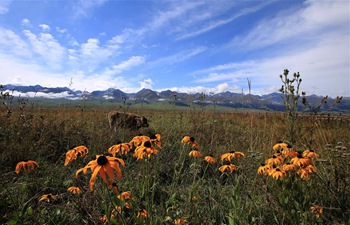WASHINGTON, Sept. 9 (Xinhua) -- U.S. scientists have provided strong evidence to the hypothesis that dinosaurs were wiped out after an asteroid slammed into Earth.
The study published on Monday in the Proceedings of the National Academy of Sciences described what happened in the hundreds of feet of rocks that filled the impact crater within the first 24 hours after impact.
When the asteroid hit the planet, it set wildfires, triggered tsunamis and blasted much sulfur into the air that blocked the sun, which caused the deadly global cooling, according to the hypothesis.
The asteroid hit with the equivalent power of 10 billion atomic bombs of the size used in World War II and the blast ignited trees and plants that were thousands of miles away and triggered a massive tsunami.
An international team led by researchers from the University of Texas at Austin retrieved the rocks from the impact site offshore of the Yucatan Peninsula in Mexico and found bits of charcoal, jumbles of rock brought in by the tsunami's backflow and conspicuously absent sulfur.
They called it a rock record that offers the most detailed look yet into the aftermath of the catastrophe that extinguished dinosaurs.
Most of the material that filled the crater within hours of impact was produced at the impact site or was swept in by seawater pouring back into the crater, creating deposits about 130 meters deep in just one day, according to the researchers.
They found inside the crater charcoal and a chemical biomarker associated with soil fungi within or just above layers of sand that shows signs of being deposited by resurging waters.
The area surrounding the impact crater is full of sulfur-rich rocks, but there was no sulfur in the core, which supported the theory that the asteroid impact vaporized the sulfur-bearing minerals and released it into the atmosphere.
Researchers estimated that at least 325 billion metric tons of sulfur would have been released by the impact. It was about four orders of magnitude greater than the sulfur that was spewed during the 1883 volcano eruption of Krakatoa, which cooled Earth's climate by an average of 2.2 degrees Fahrenheit for five years.
Sean Gulick, a research professor at the University of Texas Institute for Geophysics, who led the study, described the process as a "short-lived inferno at the regional level, followed by a long period of global cooling" that killed off dinosaurs.








